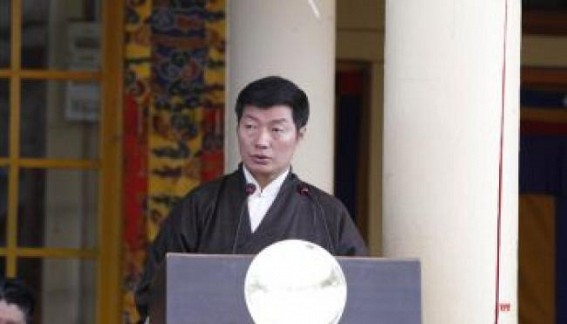TIWN

Kolkata, May 28 (TIWN) The Tibetan Government-in-Exile (TGiE) will offer a "mutually beneficial" solution to the "Sino-Tibet conflict" through negotiated dialogue with China, its new Sikyong (President) Penpa Tshering has said.
Soon after being sworn in as Sikyong of TGiE based at Dharamsala in Himachal Pradesh, Tshering expressed commitment to the Dalai Lama's 'Middle Path' that seeks genuine autonomy, not independence, for Tibet. But China-watchers say the Tibetan exiles stand little chance of getting Beijing to negotiate the status of the erstwhile kingdom it occupied in 1950-51.
"If Xi Jinping's China refuses to recognise the 'one country, two systems' it committed to uphold in Hong Kong, there is no way it will allow negotiations on the status of Tibet," said Gaganjit Singh, former deputy chief of India's Defense Intelligence Agency. Singh, a retired major-general who has closely followed China and commanded Indian military formations on the Line of Actual Control, said "the Chinese believe in the ultimate Hanification of Tibet". "They want to create a mixed race by encouraging marriage between Tibetans and Han Chinese. So they see the exiles as hostile because they keep alive the Tibetan peoplehood," Singh told IANS.
- Russia, after Western Palestinian state recognition move, says it still backs a two-state solution
- Over 800 dead, 1000 injured inEarthquake in Afganistan
- Confident that my visits to Japan and China would further national interests and priorities: PM Modi
- Awami League warns of alarming spike in violence against women, children in Bangladesh
- 12 Killed As Under-Construction Bridge Breaks Into Two In Northwest China



